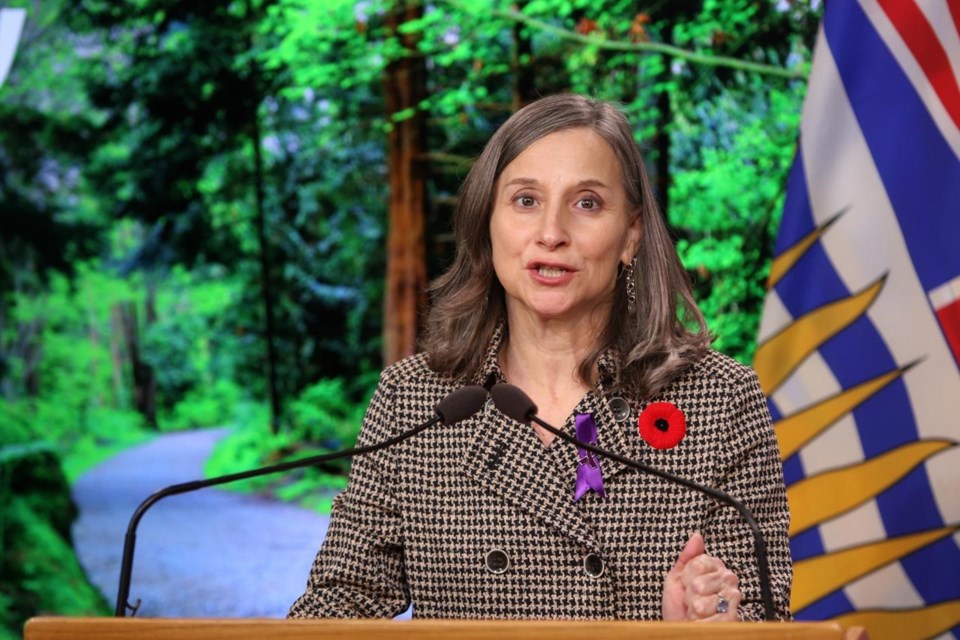VICTORIA — British Columbia has set another record for illicit drug deaths, reaching a new high for the first nine months of this year, but the situation is "not without hope," a provincial health official says.
The latest numbers from B.C.'s coroner show suspected illicit drug toxicity deaths set new records in August and September, pushing total overdose deaths to another record for the first nine months of a calendar year.
Susan Wannamaker, the Provincial Health Services Authority's executive vice-president for clinical service delivery, said the deaths have taken a toll on residents and medical workers.
"Overdoses and deaths are happening every day. It is a painful and ongoing tragedy," she said. "But we are really not without hope. There is an entire community working to save lives and get people on the road to recovery when and where they're ready."
She made the comments Tuesday as the provincial government announced it would be adding 10 new adult addictions beds in the Fraser Health region, along with social worker teams at hospitals in Burnaby, New Westminster and Surrey.
The BC Coroners Service said 181 people died in August and 152 in September, record figures for both months, and it brings the number of fatalities since the start of the year to 1,534.
September marked the 12th consecutive month in which there were at least 150 deaths due to toxic illicit drugs, the coroner service added.
Sheila Malcolmson, the minister of mental health and addictions, told the same news conference that more work is needed to improve the accessibility of a safe supply for drug users, where pharmaceutical drugs are provided to replace the toxic supply.
The safe supply program started before the COVID-19 pandemic, and allows a doctor or nurse to prescribe pharmaceutical alternatives.
But the program has faced criticism because fewer health professionals have been prescribing the drugs in rural B.C.
"That's a fact we've been hearing," Malcolmson said. "We can't have this only be a health-care solution that is offered to people in major urban centres. The rollout to every major health authority is happening right now."
Chief coroner Lisa Lapointe called the overdose death toll "heartbreaking," and said it represents a 24 per cent increase over the 1,240 deaths recorded between January and September last year.
"Urgent action on a number of fronts is required, including much broader access to safe supply, more readily available and efficient drug-checking services, and a shift from a law-enforcement focus to a health-centred approach," Lapointe said in a statement.
The agency said B.C.'s death rate stands at just over 39 for every 100,000 residents, nearly double the rate in 2016 when the public health emergency over illicit overdoses was first declared.
Lapointe's office has warned of B.C.'s increasingly toxic and volatile illicit drug supply, with the powerful opioid fentanyl found in 84 per cent of deaths while the more toxic carfentanil is linked to 137 deaths this year,more than double the 65 recorded for all of 2020.
B.C. has applied to the federal government to decriminalize possession of illicit drugs for personal use, which is a crucial step toward addressing the crisis, said Lapointe.
Seventy-one per cent of B.C.'s suspected drug toxicity victims this year were between the ages of 30 and 59, and 79 per cent were men, the statement said.
The coroner's report shows the highest death rates were found in Vancouver, the Thompson Cariboo, northwest B.C., northern Vancouver Island and the eastern Fraser Valley.
This report by The Canadian Press was first published Nov. 9, 2021.
The Canadian Press



